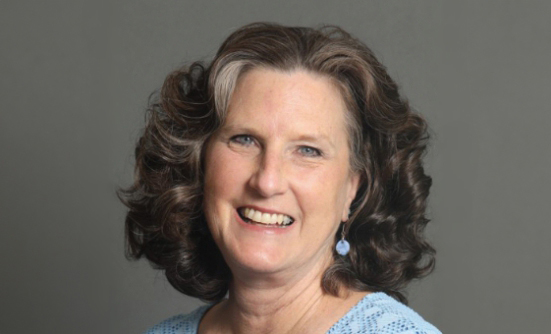Dr. Susan Gubar, a retired professor of English at Indiana University and author of Memoir of a Debulked Woman, which discussed her experience with ovarian cancer, recently wrote a New York Times blog post called, “Living With Cancer: Clinical Trials Looking for Patients.” In this post, she voiced her frustration with finding a suitable clinical trial and described the clinicaltrials.gov website as daunting.
Dr. Gubar wrote, “Patients coping with enervating symptoms and fears may find it impossible to search through hundreds of trials involving their disease. At many cancer centers, there is no research officer to help patients locate suitable trials.”
Well, there may not be a research officer, but many cancer centers have nurse navigators who can help patients with clinical trials. The nurse navigator provides and reinforces education to patients, families, and caregivers about cancer diagnosis and treatment options, as well as clinical trial education and screening.
The nurse navigation workflow is patient-centered and health system oriented, so if the nurse navigator does not feel competent in discussing trial options, he or she can direct you to someone in the system who can have an informed discussion with you.
And, clinical trials are not always about treatment; they can involve other aspects of the cancer journey.
The 4 types of clinical trials for cancer include prevention, screening, supportive care, and treatment trials.
Screening Trials
Screening trials examine new ways to find disease early and reduce the number of deaths caused by cancer. This type of trial involves ways to find the disease early, before a person has a symptom, or different ways of comparing screening tests. Another goal is to prevent people from undergoing unnecessary follow-up tests and medical procedures after a screening exam.
An example of a screening trial is the National Lung Screening Trial, which compared whether screening with a low-dose helical CT scan versus a chest x-ray reduced lung cancer–specific mortality in participants who are at high risk for lung cancer. The trial demonstrated a relative reduction in lung cancer–specific mortality of 20.0% with the CT screening after a follow-up of more than 6 years.
Medicare and private insurance now cover annual CT scans for people aged 55 to 74 who have a smoking history of 30 pack-years and who are still smoking or have quit within the past 15 years.
Treatment Trials
Treatment trials look at new drugs but may also address new types of surgery, radiation, or vaccines. An exciting advancement is treatment trials that involve testing cancer cells for the presence of specific molecular markers. These markers can include changes (mutations) in a patient’s specific genes or proteins, and this is focused on specific tumors, such as breast or lung tumors. Some examples are ALK mutations (changes in the ALK gene) in patients with lung cancer who receive targeted therapy with ALK inhibitors, or patients with HER2-positive breast cancer who receive Herceptin (trastuzumab) or Perjeta (pertuzumab).
Prevention Trials
Cancer prevention trials involve people who don’t have cancer but who have a high risk for developing the disease. Family members of patients with cancer may be motivated to participate in these trials because they are experiencing cancer from a personal standpoint with a loved one. They may be assessing their own cancer risk and ways to reduce the risk for developing cancer. These trials usually involve prevention treatment, such as taking medications, vitamins, or dietary supplements. Prevention trials are typically suited for people who have had cancer and are at risk for developing a new cancer, or they do not have cancer but are at high risk for the disease or have a family history of cancer. Prevention trials focus on exercise or doing something to try to prevent cancer, or adding certain items to the diet, such as fruits or vegetables.
Supportive Care Trials
Supportive care trials may look into issues related to quality of life, side effects, or palliative care for patients with cancer. Again, these trials can either involve a drug or an activity. For example, a supportive care trial may explore drugs that can help improve sleep disorders, pain, nausea, or eating concerns. It can also explore activities such as exercise, which can help address fatigue, depression, or other health concerns.
The Role of Your Navigator
With so much going on in the world of clinical trials, your nurse navigator is a connection point. You can be so overwhelmed at first, but the navigator can confirm that you meet the criteria for trial participation and provide a future contact personally or by a research nurse in a few days. Family members interested in prevention or screening trials can always call the navigator later when they feel they have the time to discuss a trial or the ability to participate in a study.
You can expect an explanation in layman’s terms on the purpose of the trial, what your responsibilities will be to participate in the trial (drug, activity), any extra commitment to scans or blood draws, and whether you will be compensated for time and expense. Be prepared to be walked through the written documentation about the trial, because it can be very overwhelming with intimidating language and research terms. You will always receive a copy of anything you sign, and you can withdraw from a study if needed.
At our institution, navigators are involved in clinical trials screening and education. The navigators don’t function as a research nurse, but are connected to the nurse that oversees clinical trials for the specific patients we navigate. The research nurse keeps the navigators up to date on new trials and their participation criteria. She is only a phone call away if questions come up during the interview regarding a patient meeting the trial criteria.
As patients are navigated and participate in clinical trials, the navigators reinforce the education about trials and, in some cases, are able to offer to a patient the opportunity to talk to a previous patient who participated in the same study.
Promising New Strategies
A recent article featuring Dr. Sandra M. Swain, Medical Director of the Washington Cancer Institute, offers insight into new strategies that may lead to the best promise of progress in cancer care. She describes the development of new treatments in new types of clinical trials that could lead to more effective therapies, with fewer side effects.
Dr. Swain describes “umbrella trials,” which enroll patients with the same type of cancer but with different genetic changes (mutations). These patients were placed into the treatment group based on the molecular makeup of their tumor, not the type of tumor. An umbrella study has many different arms under the umbrella of a single trial, which allows the researchers to test a variety of targeted therapies at the same time in patients who are most likely to benefit.
In “basket trials,” new treatments designed for a specific genetic change in a tumor are being tested in different cancers. One example involves patients with colon cancer and ovarian cancer who were assigned to their own “baskets” or groups within the same study. This type of study allows for new therapies to be evaluated in patients with different tumor types.
Patient Resources
National Institutes of Health
http://www.clinicaltrials.gov
National Cancer Institute
http://www.cancer.gov/clinicaltrials
















